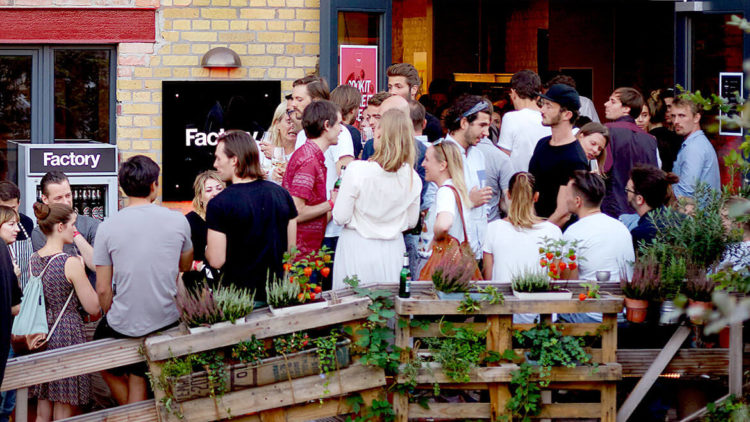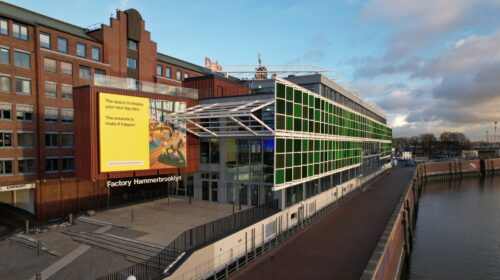
August 29, 2016
The Art of Event Planning: Behind the Scenes of Successful Events
In the startup scene, conferences and meetups provide the platform for entrepreneurs to learn about new companies and technologies, and most importantly to connect offline: network, network, network. Being in the right place, in the right time may even land startups a new partner or investor.
Set the event venue
One might think it’s a no-brainer, but finding a venue to cater to the needs of your audience can be tricky if not difficult. “The venue makes the event, not the other way around,” said Jacopo Luperi, Head of Operations at Tech Open Air (TOA), Europe’s leading interdisciplinary technology festival discussing tech, arts, music and science.
“It’s important to understand how people organize themselves in a space,” Jacopo explained. “In terms of venue, striking a good balance between outdoor and indoor spaces is a great idea”. It’s necessary to allow guests to observe and absorb attention-driven experiences in more intimate areas and connect with people in more open spaces.

“The venue makes the event, not the other way around.”
Establish Your Purpose
For Factory Berlin’s former Community Event Manager, Ashleigh Bell, the most important aspect of event planning is finding the purpose of the event. “I always keep my eye on people doing exciting things in our community and invite them to collaborate, creating a theme around what they do.”
Ashleigh is the mastermind behind the bi-weekly community event, Meet & Pitch. When coming up with the format, she was considering ways to get people to connect with each other, going beyond a simple afterwork hangout. “To create an authentic experience, you should involve your audience in the event as much as possible,” she pointed out.
Content is key
For large-scale events, like festivals and conferences, it’s hard to find speakers without a particular theme. Jacopo suggests to imagine the event as if it was a movie and think of what kind of actions and characters your audience would like to see.
“When sourcing content, my personal no-gos are: company and marketing presentations, and presentations that are easy to find on Google.” One should aim to find speakers who are passionate about a certain topic and are able to transmit that passion to others.
Attendees of such big events may consist of a variety of people. “We always think about what is relevant to a founder,” said Su Song, Project Lead of the Heureka Conference, an event for early-stage startup founders who want to take their business to the next level. Be it speed pitching to potential investors, attending a panel talk or learning something new at a workshop, Heureka is about catering to the entrepreneurial mind and not to the tech industry as a whole.

“Think about the places your target audience goes and try to be there.”
Get an event sponsor, or three
“You can’t really do what you want and the way you want to do it without the financial freedom”, said Su. For finding sponsors Su suggests to screen the whole market, look for companies who might be interested in you and reach out to them directly. Again, it comes down to relevant content that can spark prospective attendees’ interest and attract potential sponsors to be part of your event. The more sponsors, the more flexibility you have to create the experience you want.
Confirm speakers ahead of time
Timing is everything, from making sure every step is outlined in your schedule to having each speaker on stage at the right minute. “The more you want a speaker, the more time you need to target them,” said Su.
Target to your market
“Think about the places your target audience goes and try to be there. Distribute flyers at tech hubs, attend meetups and relevant partner events. You’ll find the people who are interested in similar topics there,” said Su.
Spreading the word in various forms can boost visibility and portray in more depth what your event is about. Despite the digital era we live in, it is hard to defy the efficiency of face-to-face communication. Word of mouth works like magic.

Be prepared and be flexible
“An event, by definition, is a living organism. You can never have everything under control,” explained Jacopo. “The first thing to learn is that change will happen and you have to be ready for it at all times.” It’s important to keep an open and flexible mind and try to see the event from as many angles as possible. After all, an event is always a sum of experiences of the people that take part, Jacopo pointed out.
When hosting an event with many moving parts and different locations, it’s inevitable for mistakes to happen. “If something were to go terribly wrong, just be honest and tell the audience what happened,” said Su. As they say, honesty is the best policy.
However, if you plan everything properly to the smallest detail, on the event day everything should run smoothly. “You can just watch the show happen right before your eyes,” Ashleigh explained.

“If you plan everything properly, on the day everything should run smoothly and you just watch the show happen before your eyes.”
Always ask for event feedback
“Feedback is as crucial, as the planning,” said Jacopo. “Communication is key, in the most straightforward and open way,” he added. Get feedback from sponsors, speakers, attendees, volunteers and team members and understand that there’s always room for improvement.

